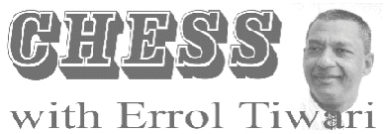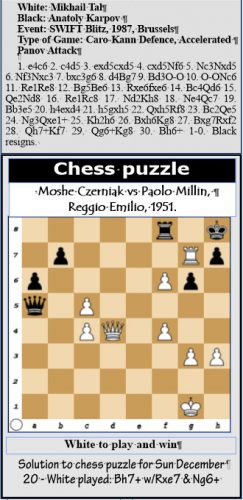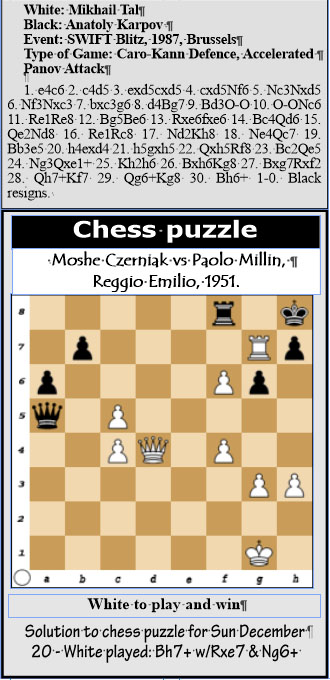 Knowing is not enough; we must apply. Willing is not enough; we must do. – Johann Wolfgang von Goethe
Knowing is not enough; we must apply. Willing is not enough; we must do. – Johann Wolfgang von Goethe
The words of von Goethe are appropriate for Guyana as it relates to chess. Since COVID-19 confronted us in March, physical, over-the-board contact ceased. However, it didn’t prevent us from contesting online tournaments which benefitted our youth especially.
We competed in two serious World Chess Federation (FIDE) competitions opposing contenders from 160 nations. We won a few games, lost a few and drew a few. FIDE targeted the age group 10 to 18 years with the intention of exposing youth to sustained, rated competitions. It is only through rated competitions that we could cement our place in the top echelons of chess.
Years ago, to achieve a coveted chess norm or even to increase our rating points, we had to participate in a tournament overseas. Today, we have FIDE-rated competitions which are conducted locally. FIDE-rated competitions enable players to improve their rating points. Competition is an inspiring way to keep in shape, overcome rustiness and reach for better results.
Guyana is improving at chess. If we desire the state’s exclusive involvement, we are inclined to develop a preeminent player, preferably a prodigy. The key is to have many persons playing competitive chess, and, eventually, we would find someone who would be capable of climbing Mount Olympus. A player who limps along tediously will not cut it.
The Icelandic Ambassador to Guyana was accurate when he suggested that perhaps we have to produce someone extraordinary to capture the attention of the nation and the imagination of the region. This is our nation’s academic challenge. There is no universal recipe for achieving our goal and this is what makes the task difficult, but not insurmountable. We have to play and search until we strike gold. Other countries have produced child prodigies in chess.
Emanuel Lasker, a German and a previous world champion noted that above all chess is a struggle. There is no easy way to create a chess phenomenon.
Chess is all about strategy. Kasparov said it’s the heart of the game. In circumstances which involve strategy, we have to make decisions. Each move we make on the chess board involves a decision. Should we execute a check with the queen or should we move the rook to the 7th rank? What about the knight? Should we move it backward or forward? These are the thoughts which are going through our heads whilst our clocks are ticking. We have to make decisions carefully and sometimes immediately. Moving the queen, or the rook or the knight is a tactic which complements our strategic purpose. Strategy is abstract and based on long-term goals while tactics are concrete, opportunistic and based on finding the correct move.
 These are the common lessons that chess teaches us – making correct decisions most of the time. From chess, decisions overflow to other pursuits in life: the military, business, government, international relations and so on. An essential part of the chess player’s discipline is asking why. A chess player is always asking himself/herself why he/she played this move or that.
These are the common lessons that chess teaches us – making correct decisions most of the time. From chess, decisions overflow to other pursuits in life: the military, business, government, international relations and so on. An essential part of the chess player’s discipline is asking why. A chess player is always asking himself/herself why he/she played this move or that.
In today’s featured game between Mikhail Tal (the magician from Riga) and Anatoly Karpov, both world champions, a clash of style is evident. Tal is the sacrificial genius as opposed to Karpov, the perennial strategist. Early on, Tal sacrifices a rook for a bishop.
Enjoy! Happy New Year!










